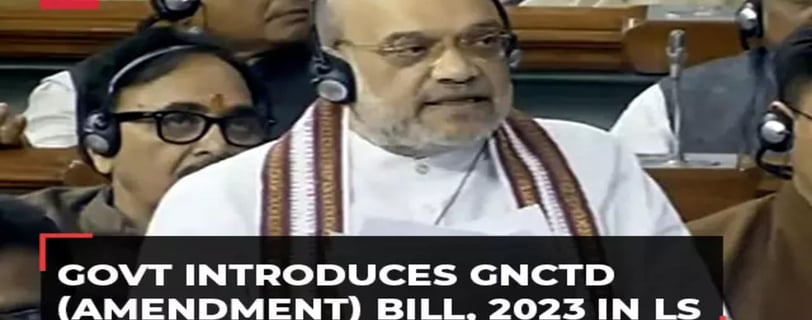The Delhi Amendment Act of 2023 has received the President's assent
Blog post description.


The President's assent to the Government of NCT of Delhi (Amendment) Bill, 2023 has ignited a significant debate regarding the distribution of powers between the Delhi Government and the central authority. This contentious bill has implications for the governance structure in the National Capital Territory of Delhi, with particular focus on the administration of services.
The bill's retrospective enforcement from May 19, the date of its initial promulgation as an ordinance, has added to the intensity of discussions surrounding its intent and implications. The central issue at hand is the perceived dilution of powers vested in the Delhi Government, particularly in matters related to services. This pertains to the control over key bureaucratic appointments and decision-making processes within the Delhi administration.
Advocates of the bill argue that it addresses long-standing ambiguities and conflicts in the division of powers between the elected Delhi Government and the central authority. They contend that streamlining administrative procedures will enhance the efficiency of governance, ensuring smoother implementation of policies and projects.
However, critics view the bill as an encroachment on the autonomy of the Delhi Government, which has been democratically elected by the residents of the National Capital Territory. The retrospective nature of the enforcement has led to accusations of bypassing democratic processes, raising concerns about the erosion of federal principles and democratic norms.
The situation raises broader questions about the balance of power between states and central governments in federal structures. It also underscores the significance of respecting the principles of federalism and allowing local governments a degree of autonomy to cater to the specific needs of their constituents.
This development is likely to have political, legal, and constitutional repercussions. Legal challenges may arise as stakeholders contest the constitutionality of the bill and its impact on the division of powers prescribed by the Constitution of India. Political reactions will likely reflect the broader ideological stances of various parties, adding another layer of complexity to the ongoing discourse.
Ultimately, the aftermath of this bill's enactment will necessitate a careful assessment of its effects on the governance of Delhi. It will be crucial to monitor whether the concerns of diluting democratic representation and centralizing decision-making are realized, or if the changes indeed lead to more efficient governance.
As this situation unfolds, it is imperative for all stakeholders – the central government, the Delhi government, legal experts, civil society, and the public – to engage in constructive dialogue to ensure that the governance structure established by the Constitution continues to uphold democratic values and meets the needs of the people it serves.